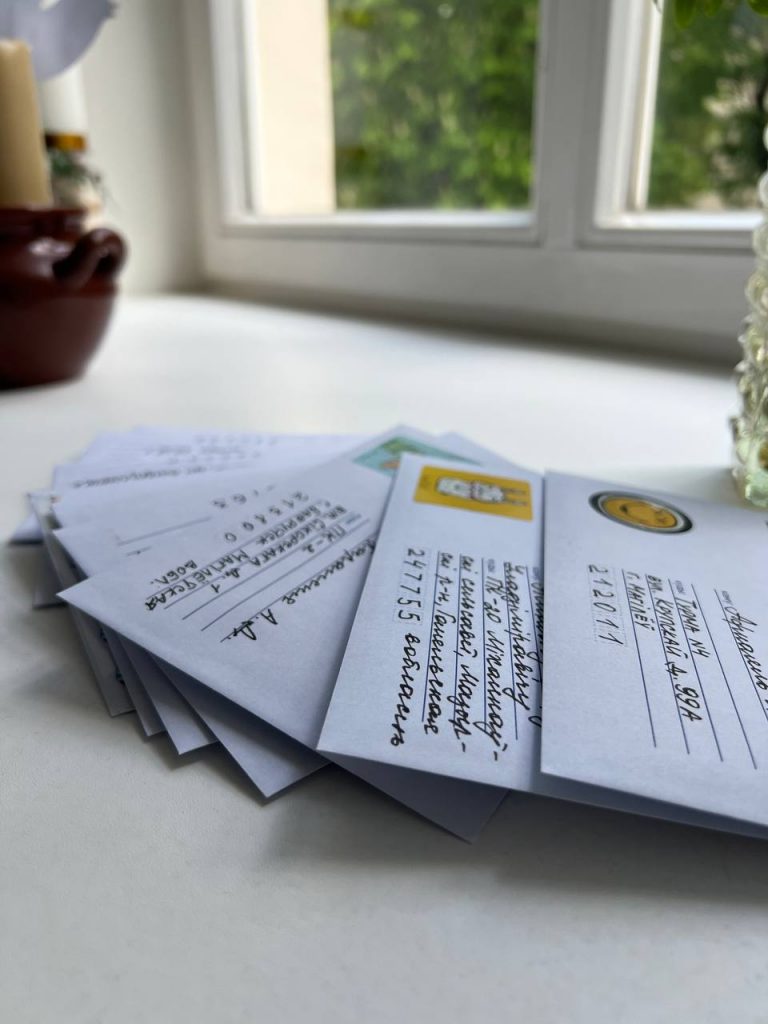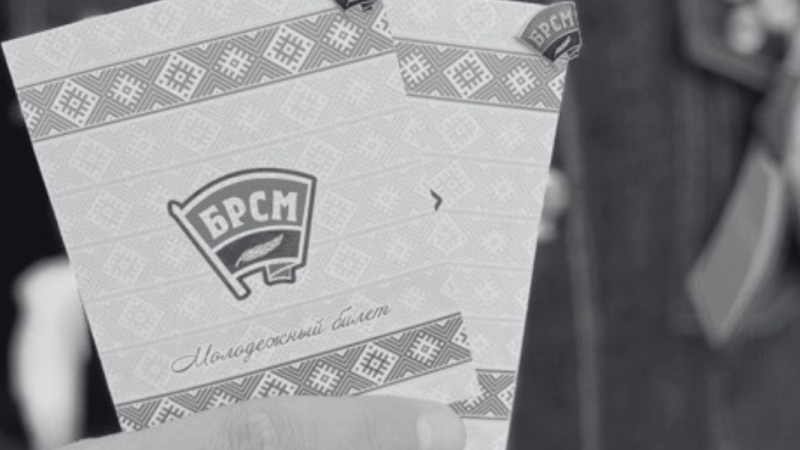A short guide on what and how to write to young political prisoners behind bars

May 21 is the Day of Political Prisoners in Belarus, of which there are currently more than 1,200* people. Among this huge number, at least 773 people are young people aged 18 to 35. We urge you to support them with money transfers, parcels and letters of solidarity.
As part of the “Solidarity Postcard Workshop” initiative, we have developed several important technical and substantive tips.
How to write? Block with technical information on sending solidarity correspondence to jail
To send a letter from the post office, you will need a sheet of paper, an envelope and a postage stamp.
The envelope can be immediately sealed with a postage stamp, or it can be simple, which must be stamped with the letter “A” for convenient sending or the letter “K” for sending 1st class.
The same instructions apply to postcards: the stamp can either be stuck directly on the postcard or put in an envelope with a stamp and sent from the nearest post office/mailbox.
We recommend enclosing an additional envelope for the possibility of replying to your letter, as well as a blank postcard or sheet of paper. You can also attach stickers, postage stamps, and printable colouring pages, but remember that the maximum number of attachments per envelope is 2.
It is also important to sign the envelope correctly, according to the rules of Belposhta. This will speed up the process of sorting mail by employees and exclude the possibility of your shipment getting into the dump of the Belposhta branch.

What to write? Ideas and tips for solidarity news to young prisoners
It should be understood that a letter to young political prisoners should not differ from your usual, standard style of communication with people. That is, it is important to follow at least the rules of communication etiquette: say hello at the beginning, tell what your name is and ask how the person is doing there, follow the “dialogue” of your news and say goodbye at the end.
We also recommend putting a date and number on each shipment. The date will help the prisoner to understand how many letters and postcards actually go to him or her, and the number will allow not to get lost in the news sent and to track how many shipments in this vortex were lost.
You can write in Belarusian, Russian or to some prisoners in English, avoiding abbreviations and potentially dangerous topics (political slogans and appeals, geopolitical news, mentions of offences or crimes).
What to write:
- About your academic experience. Many prisoners have lost the opportunity to go to university or continue their studies, so they are thinking about how and where to continue their academic path after release. Tell us about the place where you study or have studied, why it is (not) cool and what places of study you are personally attracted, interested, inspired.
- About novelties of films, TV series, musical works. Prior to his imprisonment, young people were young people: they listened to Spotify’s selections and followed Netflix’s news. Imprisonment creates isolation from the fast-paced world, but you can keep them informed with your letters! Tell us about new movies / TV series and your impressions of them (definitely, but without spoilers!), About Adele and Max Korzh’s new albums, as well as the results of the Oscars or Grammys. This is sure to please the recipients of the news!
- Lines, excerpts from tracks by popular artists. Often prisoners organize poetry readings in the cell or singing parties (yes), so the words of favorite friends songs (by Max Korzh, NAVIBAND, Nizkiz, etc.) can be a good help for singers.
- Memes. Printing, drawing, sharing trends is always a great idea.
- Stories from youth, student life. Imprisonment lacks human impressions, emotions and experiences. Tell a story, funny or crunchy, kind of sad or impressive – it will lift the spirits, perhaps, not only the recipient of the letter, but the whole camera!
- Tops. Make your own tops of your travel destinations, countries, museums in cities and even documentary series on the BBC, justify your choice and encourage the prisoner to come up with their own. This diversifies your correspondence.
The main thing is to write what responds, what you want to tell. Sincerity in the news is the main thing.
Write, tell about your experience and stay in solidarity no matter what!
* on May 19, 2022



